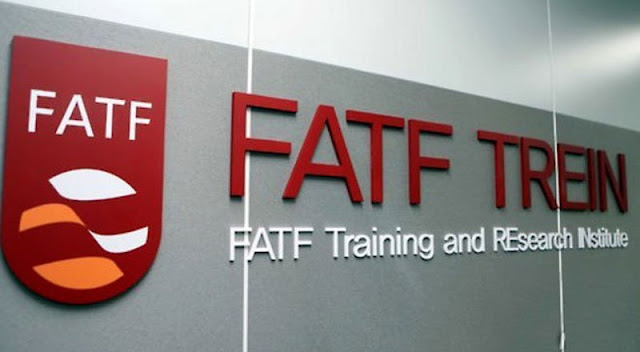By Reza Hoseani
The FATF meeting on Sunday, October 14-19, in Paris, focused on assessing the progress of the Iranian regime in implementing its organization's standards for combating money laundering and deciding whether or not to hold the name of Iran from the blacklist.
The group consists of more than 800 officials from 204 countries, institutions and jurisdictions, including the United Nations, the International Monetary Fund, the World Bank and other international organizations to attend the Six-Day Meeting (FATF); At the Organization for Economic Co-operation and Development (OECD), they traveled to Paris.
The Financial Action Task Force (FATF); is one of the subsidiary organizations of the Organization for Economic Co-operation and Development, established; international standards; One of its main tasks is to counter money laundering and financing terrorism in the world. The decision of this international organization on the Iranian regime was crucial for the continuation of the banking transactions of this regime.
Eventually, the FATF kept the Iranian regime, on its black list for the next four months.
With the intensification of US sanctions against the Iranian regime, if Iran were to withdraw from the black list at the last FATF meeting, Tehran could be re-enacted on the International Investment List.
But at the final meeting of the group in Paris, the Iranian regime was extended to the FATF blacklist for another four months, and in the run-up to the second phase of the US sanctions on November 4, The Iranian regime failed to remove itself from the FATF's blacklist and find a way to circumvent the sanctions.
In this regard, the head of the FAFT summit said we are disillusioned with the lack of progress on the Iranian regime to join the convention. However, the regime was given another four months to establish the name of the Iranian regime on the blacklist or remove it from the list.
Parliament of the Iranian regime, following the intense battles of the various factions of the Iranian regime, finally has approved four drafts including the bill on Iran's accession to the Convention on the Suppression of Transnational Organized Crime called the Palermo Convention; the bill on the accession of Iran to the CFT Convention; the Law on Amendments to the Law The fight against money laundering, and the bill to amend the law to combat terrorist financing.
But only one of the bills succeeded in crossing the barrier of the Guardian Council and turned into law, and three other laws did not actually become law.
It is noteworthy that the FATF Executive Director, in an interview, stated that the Paris meeting was the last deadline for the Iranian regime to review its adherence to this international convention.
Meanwhile, it has been 10 months since the Iranian central bank committed itself, but the Iranian regime has not yet completed the necessary steps.
Two years ago, Iran's name was on the FATF blacklist, but after a nuclear deal with Iran, and with the acceptance of obligations by the Iranian regime, the special measures of this group against Iran were suspended.
The FATF expects the Iranian regime to do the following to exit the blacklist
Criminalization of terrorism financing, without exception.
Identifying and blocking the assets of terrorists in line with United Nations Security Council resolutions.
Ensure full independence of the financial information department and the need to file a suspicious financial transaction report.
Provide documentation on how to identify and punish unlicensed financial service providers.
Ratifying and enforcing the Palermo Conventions and combating the financing of terrorism and clarifying the ability to provide legal services.
Ensure that financial institutions record all financial transactions with full details of the sender and recipient.
Considering fines for offenders in relation to money laundering
Ensure the adoption of the necessary rules and procedures for the confiscation of property.

Reza Hoseani is a writer, analyst, expert on Iranian affairs, a human rights activist and a defender of the rights of women, children and political prisoners
http://freedomforiran.com/
http://iranpanorama.news/
https://iran-panorama.blogspot.com/
https://plus.google.com/u/0/communities/105045439071730875696





Comments
Post a Comment